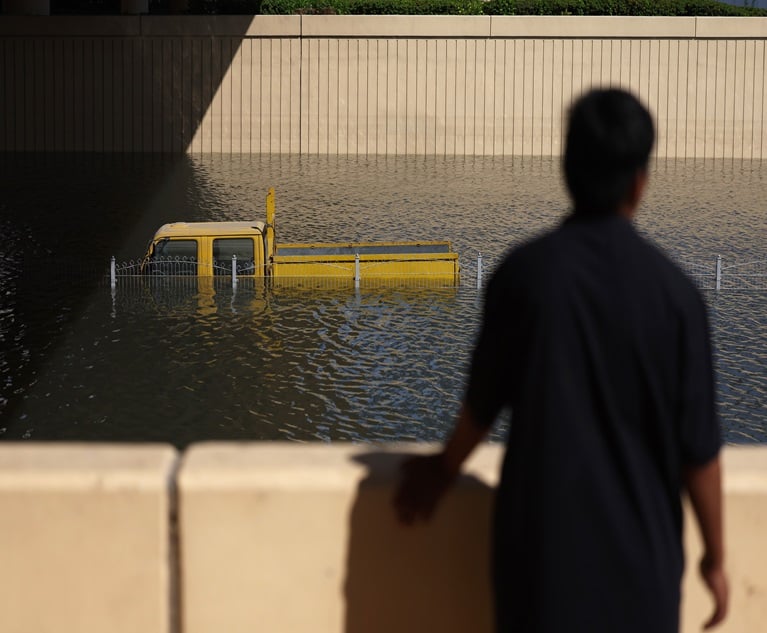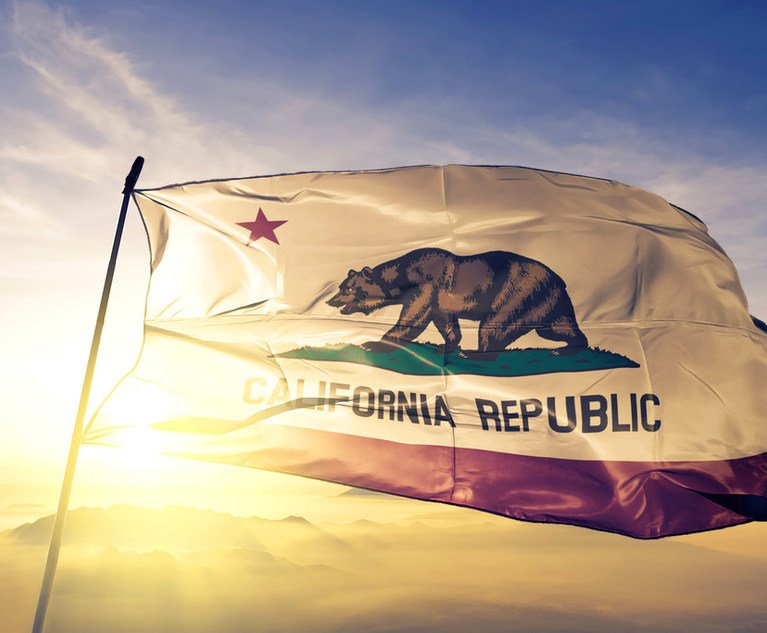 Mike McCreary was doing what he had been told.For years, he had been riding the fence, but now seemed like theright time to finally get an adjuster's license. Superstorm Sandy had just struck theNortheast seaboard and his uncle and cousin, 7-year veterans of theindependent adjusting industry, urged him to get his Texas licenseto come up and join them. That is what McCreary intended toaccomplish before a few things got in the way.
Mike McCreary was doing what he had been told.For years, he had been riding the fence, but now seemed like theright time to finally get an adjuster's license. Superstorm Sandy had just struck theNortheast seaboard and his uncle and cousin, 7-year veterans of theindependent adjusting industry, urged him to get his Texas licenseto come up and join them. That is what McCreary intended toaccomplish before a few things got in the way.
The Texas Department of Insurance (TDI) began enforcing a newinterpretation of its statutes, which meant that non-residents ofTexas who hailed from a state that licensed adjusters could notobtain a Texas license without holding their home state's licensefirst. McCreary, a resident of Kentucky, was out of luck, not tomention several hundred dollars and more than 40 hours spent ononline coursework. Because it took TDI a few weeks to process hisapplication and issue a notification of rejection, McCreary was sixweeks into the process and no closer to a license than when hebegan. Meanwhile, the window for joining a firm for claims work inthe Northeast had effectively closed.
|McCreary's story illustrates the unfortunate consequences of twocommon missteps aspiring claims adjusters make when gettingstarted: The first is a simple mistake in timing. He had waiteduntil after a major event occurred to begin the process of becominga catastrophe adjuster. Consequently, his margin for error withinthe process was razor thin, at least for that deployment. Hisdecisions were made hurriedly, without proper due diligence, andthe result was that he missed out altogether. That mistake wasMcCreary's alone.
|The second mistake is one actively aided and abetted by the IAindustry itself. Rather than being counseled to get his home statelicense first, McCreary was told by his family, and even a few IAfirms, to pursue a Texas license. Apparently that route had workedfor years, and adjusters licensed in Texas enjoyed something of aprivileged status with some benefits when it came to reciprocity.But it didn't work for McCreary, because navigating the waters ofadjuster licensing is tricky business. Each state has its ownparticular rules and regulations. Some states like Californiarequire 4,000 hours of work as an adjuster before a person evenbecomes eligible for a license. On the opposite end arethe 16 states that do not require a license at all. Moreover, the rules in each state change often,with little or no official promulgation. Indeed, in McCreary'scase, Texas determined in September 2012 to modify licensing rulesfor non-residents, leaving Mike in the cold.
|Home Sweet Home
|Amid all this complexity and flux, however, adhering to onebasic principle will never steer you wrong—that is, to pursue yourhome state's adjusting license first. In some states, that meanspassing the state adjuster exam. Minnesota, Michigan, and New Yorkare examples of states where all resident applicants must pass thestate exam. Others, such as Texas and Florida offer an option totake an approved 40-hour pre-licensing course and exam as analternative to their official State Exam. Others still, such asIndiana, Georgia, and Alabama require both a pre-licensing courseand the state exam. Whatever your state's prescriptions forlicensing, strictly follow them and get your home state's licensefirst.
|For residents of the 16 states that do not license adjusters,the recommended route would be to pursue licensing in another statethat can then be designated as your “home state.” For thesepurposes, two states work particularly well: Indiana and Texas.Both offer an ultra-convenient pre-licensing course availableeither online or in a live 3- or 4-day classroom setting. Moreimportantly, both states accommodate the designated home state(DHS) status that will maximize your license's capabilities when itcomes to reciprocal licensing.
|Demystifying Reciprocity
|This brings us to the real significance of owning either your resident state'sadjuster license or a DHS license—reciprocity. Critically importantin adjuster licensing, reciprocity enables you to work in a varietyof other states—obviously a valuable asset for catastropheadjusters working nationwide. The way it actually works, however,is widely misunderstood.
|Our friend Mr. Webster defines reciprocity as “a mutual exchangeof privileges; specifically: a recognition by one of two countriesor institutions of the validity of licenses or privileges grantedby the other.” So what would that look like in terms of adjusterlicensing?
|For illustrative purposes, let's select two states at random:Georgia and Utah. If Georgia and Utah were reciprocal, then thatwould mean that Georgia would specifically recognize the validityof Utah's license and vice versa. That could play out in a coupleof different ways: First, it could mean that licensed Utahadjusters could work in Georgia under the authority of their Utahlicense…and, of course, vice versa.
|This would be similar to reciprocity amongst some country clubs.If I am a member at Crestwood Country Club, then I can play golf atBlue Hills Country Club and a number of other clubs in a mutuallyagreed upon network through reciprocity. That doesn't mean I am afull member of those other clubs; it just means that I can playthere. Thus, as a licensed Utah adjuster, you could “play” orhandle claims in Georgia, because Utah also agreed to let licensedGeorgia adjusters do the same within their own state lines.Adjuster licensing doesn't work the same way, as you can't waltzinto another state and start immediately handling claims under theauthority of some other state's license. Perhaps it could mean thatGeorgia would issue you a Georgia license if you held a Utahlicense first, with Utah extending the same to Georgia licensees?Now that more so resembles the way things operate in the world ofadjuster licensing. You can't operate in a reciprocal stateimmediately; however, you can get that state's licensewithout having to take the state exam. Sound familiar?
||Well, not so fast. It is true that a licensed Utah resident canget a Georgia non- resident adjuster license without having to takethe Georgia pre-licensing course and exam but, and it's a big but,it isn't because of any mutually agreed upon arrangement betweenUtah and Georgia. Rather, it is because you hold a residentlicense. Georgia, and the majority of states will license you“reciprocally” (except not actually reciprocally) if you hold aresident license somewhere, anywhere.
|At a certain point, it appears to be a case of semantics. Whohonestly cares if it is true reciprocity if, at the end of the day,you can still obtain another state's license through some kind ofprocess? That's fair enough with one important qualification.Because inter-state licensing turns upon the question of residencymore than the question of state, there really aren't any statesthat are more or less reciprocal.
|For years, the Texas license has been heralded as a kind ofsilver bullet for reciprocity. In reality though, Texas is no more“reciprocal” than Utah, Georgia, or just about any other state thatlicenses adjusters. That's because true reciprocity doesn't haveanything to do with it, while residency does.
|Precipitated by the recent changes at TDI, the adjustingindustry appears to be increasingly recognizing that reciprocityisn't about one particular state's license over another andcertainly not Texas as a uniquely superior preference. Rather, itis (and has always been) about getting your home state's licensefirst and operating from there.
|Getting It Right
|Now let's rewind to our friend McCreary. What could he have donedifferently? Ideally, he would have started the licensing processwell before storm season was in full swing. He would have pursued alicense in his home state of Kentucky and passed the state adjusterexam. With the Kentucky license in hand, he would then obtainthrough reciprocity a few other key state licenses, such as Texasand Florida. Both represent high-volume areas for claims and aregenerally well-esteemed by adjusting firms.
|Anticipating the Midwest's propensity for hailstorms, McCrearycould've secured Oklahoma and Minnesota to further diversify hisrange of operation. He would've secured a roster position onnumerous adjusting firms and could be anticipating the call fordeployment. Of course, Sandy hit New York, among other places. NewYork responded by issuing 6-month temporary licenses to adjustersfrom out-of-state under one condition: that they held theirrespective home state licenses. Now McCreary is on his way to NewYork and an exciting new career!
|Amid all the complexities of licensing and reciprocity, oneunassailable fact is that you can trust to get off on the rightfoot by starting with your home state.
|Daniel Kerr is COO at AdjusterPro and may be reached [email protected].
Want to continue reading?
Become a Free PropertyCasualty360 Digital Reader
Your access to unlimited PropertyCasualty360 content isn’t changing.
Once you are an ALM digital member, you’ll receive:
- All PropertyCasualty360.com news coverage, best practices, and in-depth analysis.
- Educational webcasts, resources from industry leaders, and informative newsletters.
- Other award-winning websites including BenefitsPRO.com and ThinkAdvisor.com.
Already have an account? Sign In
© 2024 ALM Global, LLC, All Rights Reserved. Request academic re-use from www.copyright.com. All other uses, submit a request to [email protected]. For more information visit Asset & Logo Licensing.








